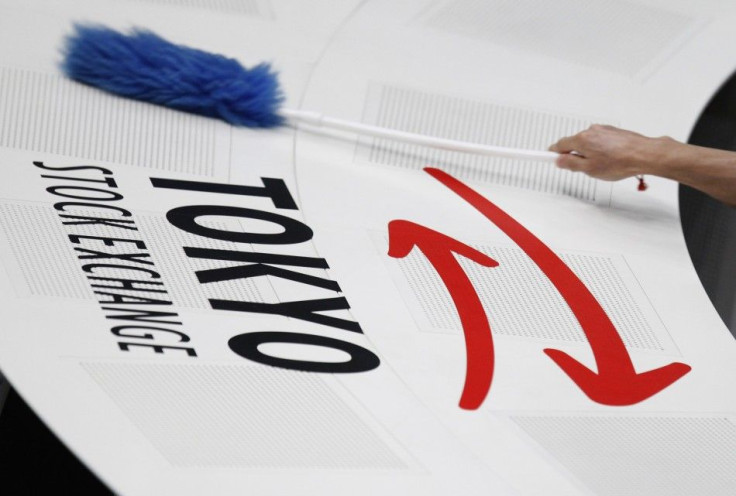Asian Stocks Tumble, Japan’s Nikkei Enters Bear Market Territory

Asian stocks tumbled on Thursday to hit fresh lows for 2013, as lingering fears about the future of the Federal Reserve's asset-purchase program and disappointment over recent policy announcements from Japan’s Prime Minister Shinzo Abe, continued to rattle investor sentiment.
Japan’s benchmark Nikkei 225 slumped 6.35 percent, or 843.94 points, to end at 12,445.38. The Nikkei, which touched a five-and-half year high on May 23, has now entered bear-market territory, after losing more than 20 percent in the past three weeks.
China's Shanghai Composite index plunged 3.11 percent while Hong Kong’s Hang Seng fell 2.67 percent. In South Korea, the KOSPI declined 1.42 percent and India’s BSE Sensex was trading down 1.11 percent in early afternoon trade.
The Nikkei fell below the 13,000 level, led by declines in exporters' stocks, which are hurting from a stronger yen. The U.S. dollar fell back to below 95 levels against the yen as ongoing nervousness about the Fed's bond-buying exercise pulled down Wall Street for a third straight session on Wednesday.
“Markets will have to wait for next week’s Fed FOMC meeting to find greater clarity over the timing and extent of Fed tapering although there will be some further input to the Fed decision from today’s U.S. May retail sales release, a note from Credit Agricole said.
Investor sentiment was also weighed down by the Bank of Japan, which on Tuesday decided to leave its monetary policy unchanged and refrained from taking fresh steps to curb volatility in the bond market.
"It's a combination of Bernanke and the BOJ that triggered this turmoil, magnifying the moves of positions that needed to be sorted out," Tetsuro Ii, chief executive of Commons Asset Management, told Reuters.
"The BOJ disappointed those who had high hopes for the great portfolio rebalancing by Japanese institutional investors, and are now rushing to close such bets. I think the Nikkei is close to completing such adjustments but currencies may take a bit more time given the markets' size," Ii said.
© Copyright IBTimes 2025. All rights reserved.





















